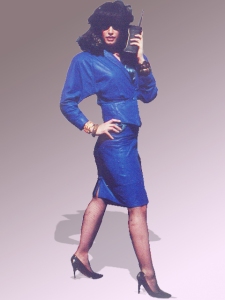
Every day, I come into work and see a new email from my boss with an inspirational quote. Whenever we have meetings the focus is always on our attitude. “Think positive!” In so many different formats. And yet oddly enough it doesn’t solve the problems affecting the business.
This is all the secular version of sending thoughts and prayers to a drowning person instead of throwing them a life raft. It feels good to the person saying it but to the person with a real problem it’s just insulting. This is called toxic positivity.
What’s wrong with positivity? Nothing, if it makes sense. Good positivity is “You can do it! I believe in you!” but toxic positivity is about discrediting valid emotions and frustrations and calling it a solution. This shit is everywhere. Just check out the /r/wowthanksimcured subreddit.

Call me old-fashioned but my approach to work is simply “Do your fucking job.” No amount of warm fuzzy bullshit is going to teach your colleagues how to use their email or prevent a security breech because somebody wasn’t paying attention. What toxic positivity does is the same thing as prayers; it lets people feel like they’re making a difference when they’re really not, and shut up the whiners who are annoying them. Well guess what, those whiners want real solutions and aren’t going away until some are found.

Personally I’m a big fan of negativity. Yes, it sounds awful, but hear me out. I’m not talking about complaining just to complain (unless I’m enjoying a good hearty vent, which I find genuinely cathartic and enjoyable). I’m talking about the first step in solving a problem: admitting the problem exists. You can’t fix what you don’t even know is broken and by facing that shit head on you’ve opened a door to making things better. Positivity in reverse. Real solutions. The key is to be tactful. Bring up a problem with the intent of solving it, either yourself or to pass it on who someone who can, sending it up the chain. “Don’t worry about the uncontrollables” sounds like smiling in a burning room because you’re not a firefighter. Call someone! This is not fine!

If you’re going to change your life, attitude is important. But it’s not the only thing. ACTION must be taken. It must be pushed for. Communication needs to happen even if other people find it unpleasant. That’s reality. You can’t just run from your problems, whistling past the graveyard. This is the irony of toxic positivity. While these people are grinning their asses off at their problems, those of us who aren’t afraid to face them and give them the acknowledgment they deserve are the ones actually finding solutions to them.
And pass that on to your boss, too.
Further reading: https://storyv.com/what-is-toxic-positivity-and-how-to-get-rid-of-it/









